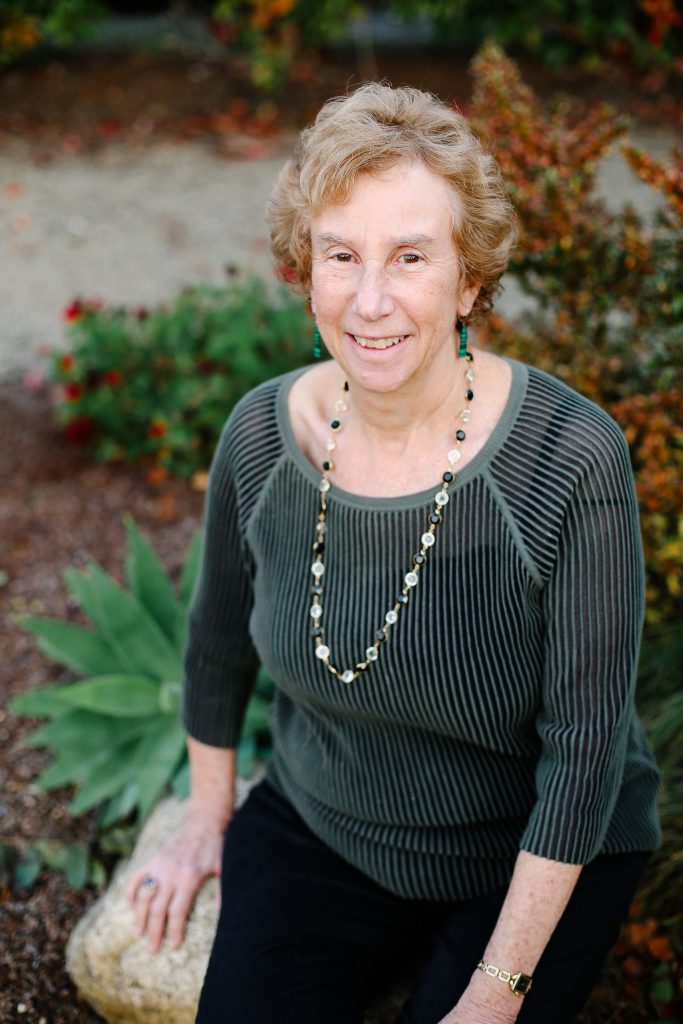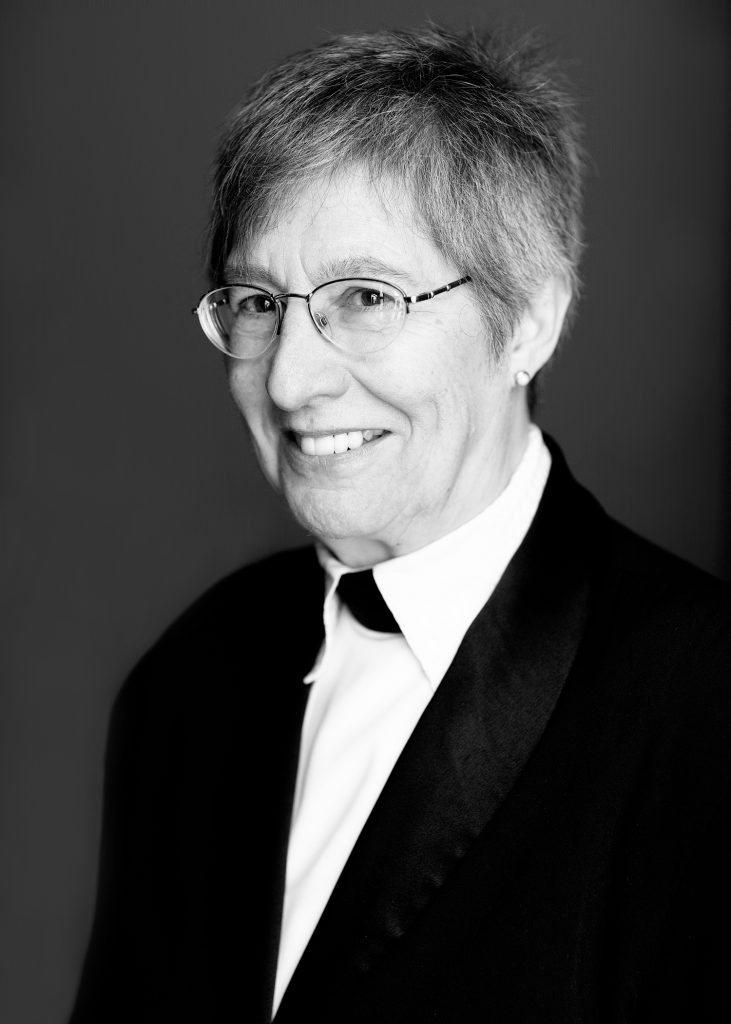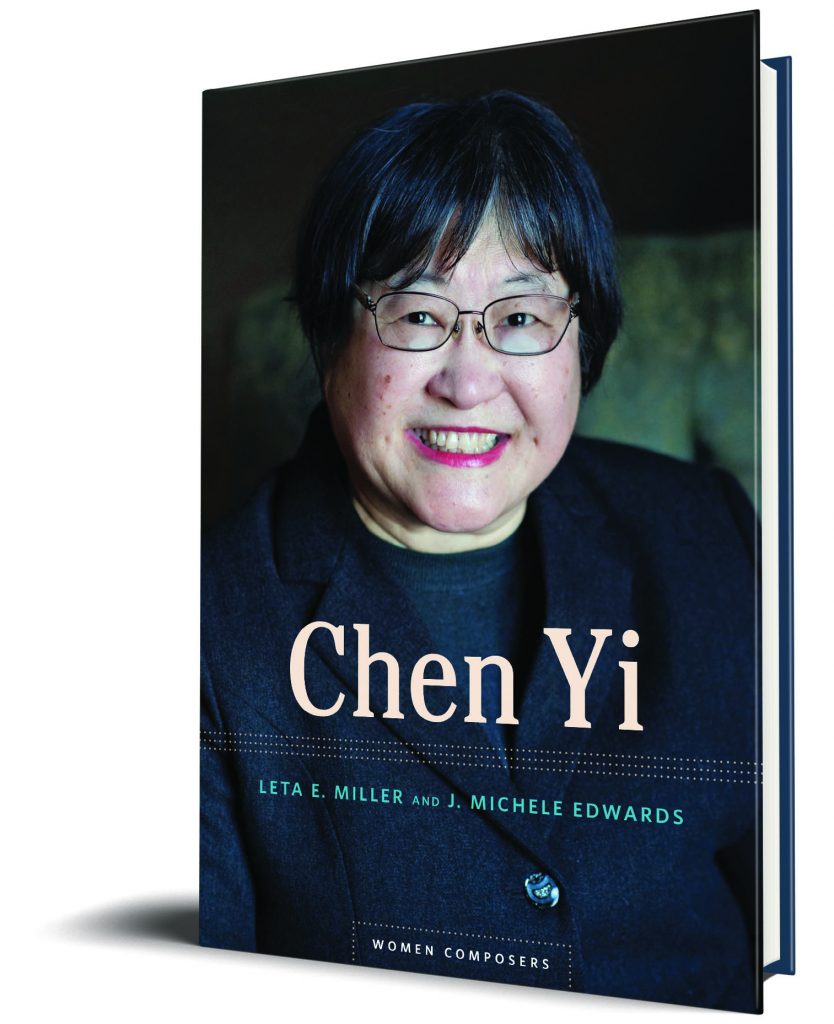Leta E. Miller and J. Michele Edwards are the authors of Chen Yi in our Women Composers series. Co-author, Leta E. Miller answers questions about her motivations for writing and their influences, and discoveries while writing the book.
Q: Why did you decide to write this book?
My primary motivations for embarking on this book project were quite simply the beauty and power of Chen Yi’s music, her skill in the art of composition, and her commitment to global understanding through the medium of sound. I first met Chen Yi when I performed her quartet Song in Winter for flute, zheng, piano, and percussion at the 1996 Pacific Rim Festival at the University of California, Santa Cruz, with run-outs to UC Berkeley and UC Davis. I was immediately struck by the expressiveness of the music and the expertise in her handling of the instrumental resources, as well as her ability to combine instruments from Chinese and Western traditions. Then I met Chen Yi herself, when she arrived in Santa Cruz to coach our faculty ensemble. Her joy in life, her respect for us as musicians, and her embracing humanity only added to the wonderful experience of performing her work. Many years later, when contemplating a book on a female composer, Chen Yi’s name immediately rose to the top of my list of possible subjects.
Q: Who were your biggest influences?

Naturally Chen Yi herself was the most important influence on the book. She welcomed Michele Edwards and me to her home for seventeen lengthy personal interviews in 2015 and 2016 and she opened up to us freely on the most sensitive subjects, such as her painful experiences during the Cultural Revolution. Following the interviews Michele and I had many questions and remarkably, Chen Yi always responded to us within a couple of days with thorough and thoughtful answers. It has been a joy working with her. In addition, others graciously gave us their time to reflect on Chen’s life and work, notably Chen’s husband, the celebrated composer Zhou Long, who not only spoke with us but also provided wonderful photographs included in the book. The other interviewees include pipa virtuoso Wu Man, violist Honggang Li (founder of the Shanghai Quartet), and Susan Cheng, head of the Music In China ensemble, which was the first performing organization in the United States to encourage and support Chen’s music after her arrival in New York in 1986.
Q: What is the most interesting discovery you made while researching and writing your book?

In terms of Chen Yi’s life, we discovered a great deal of information about her experiences during the Cultural Revolution that had either not been reported at all, or had been reported inaccurately, in previously published sources. These details enriched our understanding of, and admiration for, her astonishing achievements in the face of extreme adversity.
In terms of her musical development, we were struck by the many expressive techniques that have remained constant in Chen’s music, from her earliest works to her most recent compositions, revealing the secret of her distinctive compositional voice. We also made fascinating discoveries about the creative ways in which Chen has adapted Chinese traditional compositional processes into a contemporary musical language. These indigenous influences are often hidden beneath the surface and not immediately apparent to listeners: for example, her use of the ancient Chinese qupai Baban in nearly two dozen works as a skeletal framework or an underlying rhythmic pattern. In addition to obvious manifestations of Chinese musical influences, such as pentatonicism, sliding tones, and ornamental grace notes, these more subtle uses of Chinese musical practices show a fascinating linkage of musical styles that fulfill Chen’s aim at bringing together the two cultures that have shaped her life, without wearing her techniques on her sleeve, so to speak.
Q: What myths do you hope your book will dispel or what do you hope your book will help readers unlearn?
Almost all reviewers of Chen’s music cite her “hybridity” in uniting “East” and “West.” We show that such generalized and overarching statements are too facile and that the bi-cultural aspects of her works are far more intricate and interwoven than such simple summaries allow. We treat this matter and several other themes in our final chapter, which, rather than summarizing the book, explores issues that have come to the fore through our investigation: border crossing, diaspora, and transnationalism; syncretism, exoticism, and intersectionality; women, gender, and bias. We hope that this final chapter will enlighten readers to the complexities of the issues raised by a study of Chen’s music and will encourage them to listen and appreciate her works from a new and more nuanced viewpoint.
Q: What is the most important idea you hope readers will take away from your book?
We hope that readers will appreciate the subtleties and complexities of cross-cultural expressions in art and avoid superficial judgments and conclusions. On a more general level, we hope readers will be inspired to listen to, and appreciate more fully, Chen’s inspiring music.

